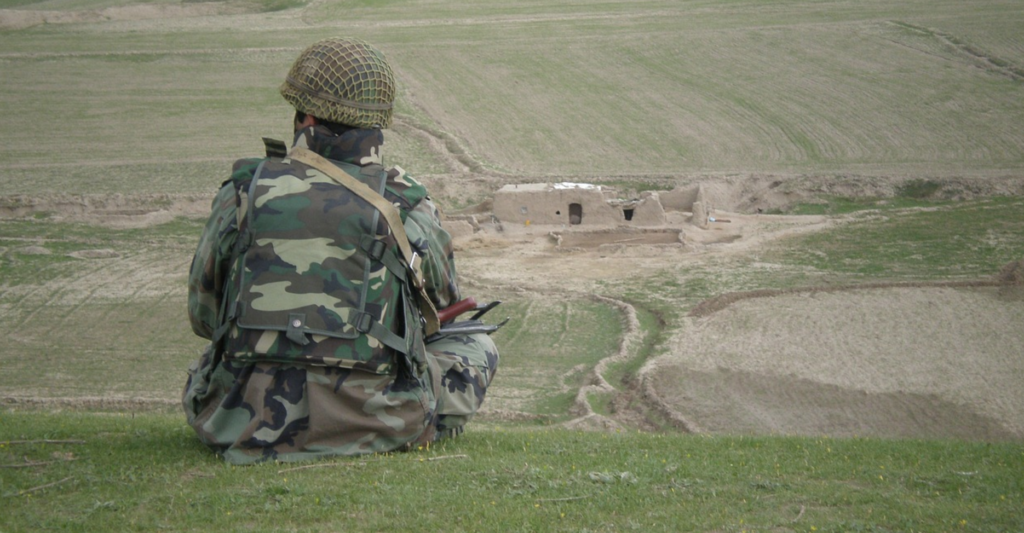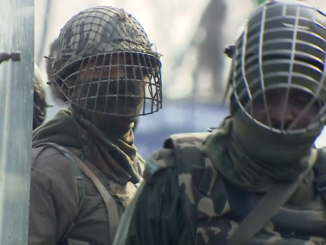
An excessive delay in intra-Afghan talks has threatened the Afghanistan peace process that was set in motion after a landmark agreement between the US and the Taliban. Signed on 29th February, it laid the roadmap for a phased withdrawal of US and allied troops from Afghanistan. The Taliban, while negotiating with the US refused to engage in direct talks with Kabul as they considered the Kabul Administration an extension of US invasion rather than the legitimate representative of the people of Afghanistan. Their stance was acknowledged by the US which agreed to keep the Kabul administration completely out of the peace process. The deal also included a prisoner swap between the Taliban and the Afghan forces as a precondition to intra-Afghan talks.
While the US is keen to end it its longest war and is going ahead of schedule for its withdrawal of troops, the release of 5,000 Taliban prisoners in exchange for 1,000 security forces personnel, required to be completed by 10th March, has not happened; intra-Afghan negotiations, therefore, have not begun.
Now the withdrawal of the US and its allies from Afghanistan is certain, as suggested both by developments on ground and statements from Washington. Meanwhile, the Kabul administration is making desperate efforts to remain in power by sabotaging the peace process and preserving the status quo. Despite the delay in the peace process, the Taliban are not worried as they are achieving their primary demand of US withdrawal. Absent US active air support to Afghan Security Forces, the Taliban are likely to seize power in Kabul in a few months or even less, as suggested by Afghan history, the ascending momentum of the Taliban and the declining morale of the Afghan Security Forces. The Taliban and the US are also on good terms with each other, in fact, Washington seems more comfortable in dealing with the Taliban as compared to the Kabul administration. However Washington has failed to remove impediments towards implementation of the agreement by using its leverage on the government in Kabul and influence on regional powers.
While the Taliban are often blamed for increased violence and not agreeing to a ceasefire, it is worth mentioning that they have not violated any clause of the agreement. Since the signing, they have completely restrained themselves from attacking the US and its allies. As per the agreement, a permanent and comprehensive ceasefire is to be an item on the agenda of the intra-Afghan dialogue for which prisoner release was a precursor. Since the intra-Afghan dialogue has not yet commenced, the ongoing offensive between the Taliban and Kabul forces, while highly unfortunate, cannot be considered a violation of the agreement. Contrary to this, the US has failed to abide by its commitments on a number of occasions.
Firstly, the prisoner release; as per the agreement, the US was required to expeditiously release combat and political prisoners, as a confidence building measure, with the coordination and approval of all relevant sides. 5,000 Taliban prisoners and 1,000 prisoners of the Afghan Government were to be released by March 10, 2020; intra-Afghan negotiations were planned to start the same day. However, the Afghan government, which was mostly sidelined from the negotiations, refused the unconditional release of Taliban prisoners as agreed in the Doha Pact. As of now, the Kabul administration claims to have released 3,000 Taliban prisoners; however, as per Taliban Spokesperson Sohail Shaheen, the government has released only 2,284 prisoners. It is worth mentioning that the Kabul Government was not only installed by the US, but its air support in Afghanistan is the only effective defense preventing the Taliban from taking over district and provincial Headquarters and even the capital. Moreover, 75% of its public expenditures and nearly 90% of security expenditures are financed through international grants (as per a report released by the US department of Defense on 19th May); therefore, the US enjoys considerable leverage over Kabul and could have easily obliged it to adhere to the Doha Peace Deal. Yet, the resistance shown by Kabul towards prisoner release manifests weakness or lack of will on the part of the US.
Secondly, the US did not address the concerns of those who are likely to lose their positions or jobs consequent to the successful conclusion of the Doha pact, most notably the Afghan political elite, the National Directorate of Security (NDS), security forces and the bureaucracy. As per the agreement, the US has committed to seek economic cooperation for reconstruction with the post-settlement Afghan Islamic government as determined by the intra-Afghan dialogue. Therefore, ideally, the US could have provided a clear plan for absorption of all such individuals into the future Afghan setup by continuing its aid and allowing the new government to shed the burden gradually and systematically. Alternatively, the US could have adopted the smart approach by engaging the top political leadership and NDS commanders through a stick and carrot policy to prevent them from sabotaging the peace process. However, US remained focused on withdrawal of its troops and left the Kabul administration and its forces to fend for themselves.
Thirdly, the US has failed to exercise its influence on regional powers that are unhappy with the outcome of the Doha pact, particularly India. In the past two decades India received massive support from the US to elevate it as a regional power as part of its China containment policy. Thus, India enjoyed a free hand in Afghanistan post the US invasion and in the garb of developmental works; India successfully shifted its war against Pakistan from its own soil to Afghanistan. Resultantly, it achieved peace and stability for its own country while both Pakistan and Afghanistan witnessed the flares of war. Despite welcoming statements, Indian policymakers are apprehensive of the merits of the US-Taliban agreement, which New Delhi views from its own strategic prism. In fact, they favored a no-deal scenario with the Taliban over a deal that favored Pakistan, especially given Islamabad’s pivotal role in the peace efforts. India is the prime backer of President Ashraf Ghani after his disputed success in the presidential elections. It feels that the peace deal in Afghanistan will erode its influence, while Ashraf Ghani also fears his political demise if the US-Taliban agreement succeeds. This brought Delhi and Ashraf Ghani’s administration on the same page when opposing the deal with the Taliban. Since the signing of the agreement, both India and Ghani, frustrated by the US withdrawal and growing ties between the US and the Taliban, have been making desperate efforts to preserve the status quo in Afghanistan.
The ISIS Khurasan chapter or the ISKP also proved to be a ragdoll in the hands of the Research and Analysis Wing (RAW), through NDS, in sabotaging the peace process. The ISKP is composed mostly of Afghans who pledged allegiance to Abu Bakr al Baghdadi and the militants who broke away from the TTP, when they were denied space in Pakistan’s territory by its army and flushed out to the Afghan provinces of Nangarhar and Kunar. However, they continued to serve NDS as they were previously doing when they were part of the TTP. This group is funded and controlled by RAW and enjoys President Ashraf Ghani’s implicit approval, a fact amply highlighted by the airlift of the ISKP leadership from Jouzjan province by the Afghan Security and Defense Forces when they were enveloped by the Taliban. The ISKP has been involved in many terrorist incidents in Pakistan; however it always refrained from bringing any harm to Indian interests in Afghanistan or in India. Recently a number of high profile incidents were claimed by the ISKP, despite their organization having been dismantled and their leadership having surrendered to the NDS; this hints towards a dangerous nexus aimed at preventing the withdrawal of US troops by presenting the ISKP as a potential threat to the security of the US and its allies.
While the delay in Peace process is threatening the logical conclusion of the Doha Pact, America will certainly bring its longest war to an end, despite the failure of the peace process. The Taliban, being better fighters than negotiators, are likely to gain more in the field than on the table. The Afghan political elite and security leadership will easily find refuge in the West or in India. Yet the failure of the peace deal will be highly unfortunate for the people of Afghanistan as it will break the dream of a peaceful transition of Afghanistan post US withdrawal and will lead to another chapter of violence.
![]()




Be the first to comment